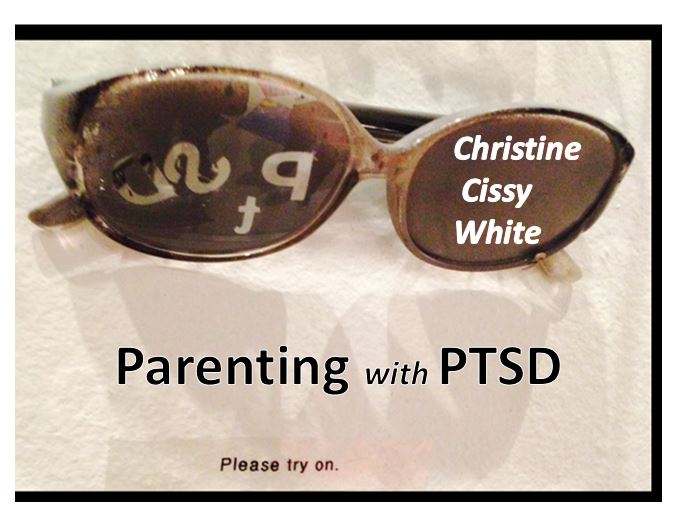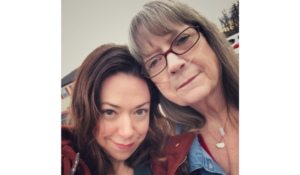Anxiety: how things used to be
When my daughter was younger, I did not yet know anything about ACEs. I just knew I was anxious. Not full-blown anxiety attacks, but rather an almost constant anxiety motoring within me that would ebb and flow. Sometimes, it lasted days. Other times, weeks. It always returned. When it did, it was hard to read, concentrate or focus. It was hard to eat or sleep or work.
It was hard to parent.
Sometimes it came with dread. I’d feel anxiety over being so anxious. How I felt in my body scared me. I wanted to be someone else. Someone who felt different.
Anxious time moved slowly. An hour felt like a month and a day felt like a year. Watching the clock, I’d will it to move. Instead of being present, I was trying to be absent from my all-consuming anxiety. Anxiety felt like a way of being, not a feeling or symptom.
Getting through the day was my biggest goal, the high bar I hoped to reach. At times, it took all I had to rise to that challenge. If often felt impossible.
Being unable to enjoy or attend to my daughter the way she deserved was the worst part of all.
She was too young to complain. Still, she felt it.
How to teach what I didn’t learn?
My daughter would get clingy. She would move in closer as though she could keep the balloon of me from floating away. Did I feel out-of-reach, like a binky dropped from a high chair or a blanket from the bed? It must have scared her to see the shaky shadow version of me. I know it scared me.
I felt like I was disappearing, crowded out by the anxiety that was sucking up all of the space and air. My anxiety felt contagious, like the flu. Just being my anxious self made me feel like an awful, terrible, no-good mother.
There was no denying she noticed, too. As she grew older, she’d say, “I feel like we’re together but not together” or “I need more Mama time.”
Part of me was proud of her ability to know and express her feelings and needs. The other part was frustrated. Her words felt like an insult, a demand, an accusation.
“I’m doing the best I can,” I wanted to scream.
“Do you know how much worse I had it at your age?” I’d think.
Self-hatred, guilt, and shame melted together like pasta, cheese, and sauce in a baking pan. The only problem was, the casserole cooked in the oven of my anxiety was not fit for consumption.
My mentor mom
Thankfully, I had a good friend who became my mentor mom. She was a role model, a confidante, and someone whose advice I was willing to take. She had what I wanted: grown children who were happy, healthy, and who still spoke to her.
When my daughter napped or watched a movie, I often sneaked into the bathroom and whispered into the phone how hard mothering was for me.
Admitting I felt anxious and scared could sometimes be enough. My friend was always gentle and warm and kind, like sunlight, water and air coming in when I felt trapped in myself. She loved and accepted me, all of me–she even tolerated the anxious part I hated.
She would tell me she was proud of me for working so hard at mothering.
She’d say that even parents without ACEs and histories of childhood trauma, the ones I thought of as “good parents,” sometimes checked out. They put their kids in front of a TV or computer or gave them a craft and some didn’t even feel all that badly.
“Are you serious?” I’d ask. “You’re not just trying to make me feel better?”
“Really,” she would say.
It felt as if she was giving me illegal, insider information.
A good-enough mom
When I felt super afraid, she’d encourage me to reach out for support. She’d tell me that beating up on myself wouldn’t help me or my daughter.
“You are a good mom” she would say.
“No, I’m not,” I’d argue, “I’m not.”
“You’re a good enough mom,” she’d insist, and though I didn’t believe her words, the fact that she said them gave me strength.
She didn’t shame me for not knowing stuff I didn’t know. She didn’t judge me for feeling shaky and scared. I could admit the truth and that alone would help me mother better. And she let me check myself so I could get a sense of what was trauma-related stuff and what was regular parent stuff. I had no way to know the difference.
It was so hard to manage my own feelings and symptoms and attend to those of my daughter. I was so afraid of all I didn’t know coupled with all I had lived through at her age. With my friend, I could ask questions without feeling defensive or getting into an argument. I could learn new ways to parent. Sometimes, just talking was enough.
A more relaxed, less anxious me
I could and would return to my daughter more whole and more relaxed. I’d be more available, with less anxiety and less self-doubt, or at least a little less self-hate.
I would hold my baby girl as we watched Sesame Street, letting the show nurture me as I took in all the calming, warm, and silly sketches. If I was too agitated for that, I might get us in the car and run errands. That way, when I did feel more present, I wouldn’t be busy with chores.
Parenting with ACEs doesn’t always require intense therapy. Sometimes all we need is a friend, a conversation, someone to remind us that we will be okay, if not immediately, then eventually.
Parents helping parents–what a great way to help our kids.
—–
This post was originally published under the title Anxious parenting: Parenting with ACEs on the ACEs Too High website in April 2017




